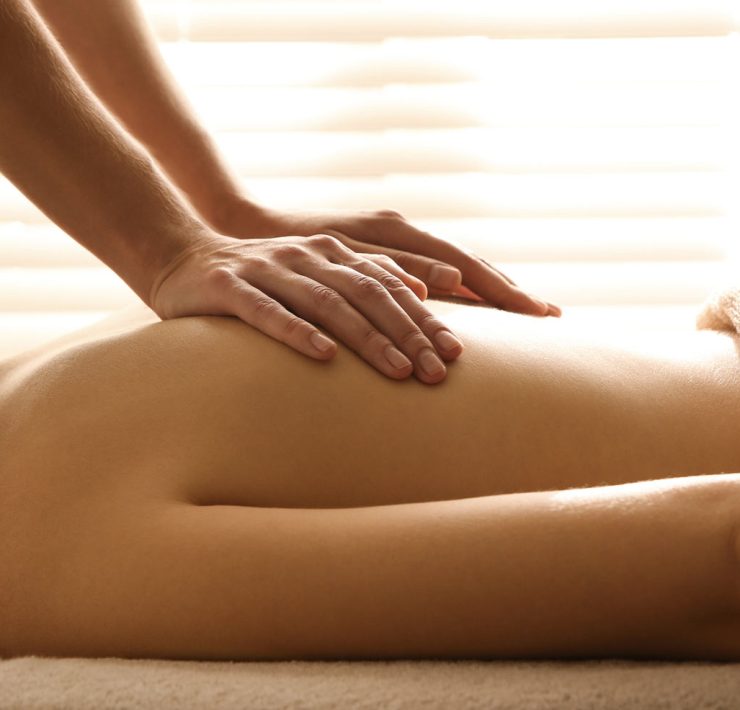Whether it’s an ACL repair or an appendix removal, every surgery comes with its own share of discomfort as you heal.
But for some people, the pain doesn’t subside quickly enough for them to get back to their regular activities.
Despite the availability of pain-relieving medications, many people still experience a significant amount of uncontrolled pain following major surgery.
There are many reasons for this, including personal and clinical barriers to the use of pain medication. In addition, painkillers alone cannot always capture the full breadth of a patient’s experience of pain.
And before you think that you can “suck it up” and push through the pain, you should understand the serious complications that persistent acute pain can cause.
The problem of pain reaches far beyond simple discomfort since unmitigated pain can lead to difficulty sleeping, coughing, breathing deeply, moving, and performing appropriate self-care. All of these can lead to potentially serious complications after surgery, as well as high levels of patient stress and anxiety.
Knowing what you’re up against as you head into – or recover from – surgery is the first step in improving your acute pain relief. Read on to understand why you may still be in pain, and what you can do to help relieve it.
Acute Pain After Surgery Is Disturbingly Common
Persistent postoperative pain is disturbingly common. According to Lynn Cintron, MD, MS, “acute postoperative pain will develop into persistent postoperative pain (PPP) in 10% to 50% of individuals after common operations.” Based on this estimate, up to 2 out of every 4 patients may have pain after surgery that persists longer than 3 to 6 months.
A combination of factors contribute to postoperative pain being undermanaged. Although clinicians have access to narcotic pain relievers, their personal bias, past experience, and patient influence can contribute to underuse of pharmacologic pain management options.
From the patient’s perspective, many are notably concerned about developing a dependence on any narcotics, and so they take less than the actual prescribed dose to avoid this perceived threat.
Beyond clinician and patient influence, the bodily experience of pain is also quite unique from one person to another, and cannot always be remedied by even appropriately prescribed and consumed pain relievers.
Massage: A New Option For Pain Management After Surgery
Since research has established that pharmacologic pain management alone may not be enough to manage your postsurgical pain, what can you use to supplement the painkillers naturally and increase your chances of relief?
Massage therapy, according to research, is a potential partner alongside pharmacologic pain relievers in a well-rounded postoperative pain management plan. In one example, a case study of inpatient pain levels in the acute care setting of a hospital in Arizona, patients described significant reductions in pain at an average of over 44% reduction in pain experienced following massage.
Therapeutic massage is the application of pressure to various parts of the body using the hands, fingers, elbows, knees, forearms, or feet, for the purpose of treating bodily stress, tension, or pain. By flushing out inflamed areas of the body with freshly oxygenated blood, massage can stimulate the production of “feel-good” hormones while improving circulation and reducing pain in the body.
Massage is proven to be helpful in relieving not only pain but also anxiety in patients who have recently undergone surgical procedures. And if you or someone you love have had surgery, you know how deeply the stress of it can affect everything you do.
Massage can also help improve sleep, reduce stress, and lower blood pressure following an operation. For a variety of reasons, professional massage therapy is a beneficial tool for postoperative patients who are still experiencing pain.
Be Your Own Health Advocate
You now have more information at your fingertips than many patients, because you understand the various reasons why you may still experience pain after surgery.
It’s always crucial to ask your clinician how long after surgery you should wait to schedule a massage or other complementary therapy, as well as clarifying any areas of the body that shouldn’t be massaged in the early days following your procedure.
When you’re scheduling your treatment, don’t forget that if you book a massage with Zeel, you may be able to use your HSA or FSA dollars to help pay for your massage.
Now is the time to be your own health advocate, asking your health care team the important questions about how to supplement your pain relief with holistic options.
Margo Carroll is a marketing strategist and email funnel copywriter for online business owners. She has worked with many massage therapists and has been featured in Massage magazine, the Massage Business Blueprint and MindBodyGreen. Learn more about Margo at margocaroll.com and on LinkedIn.








